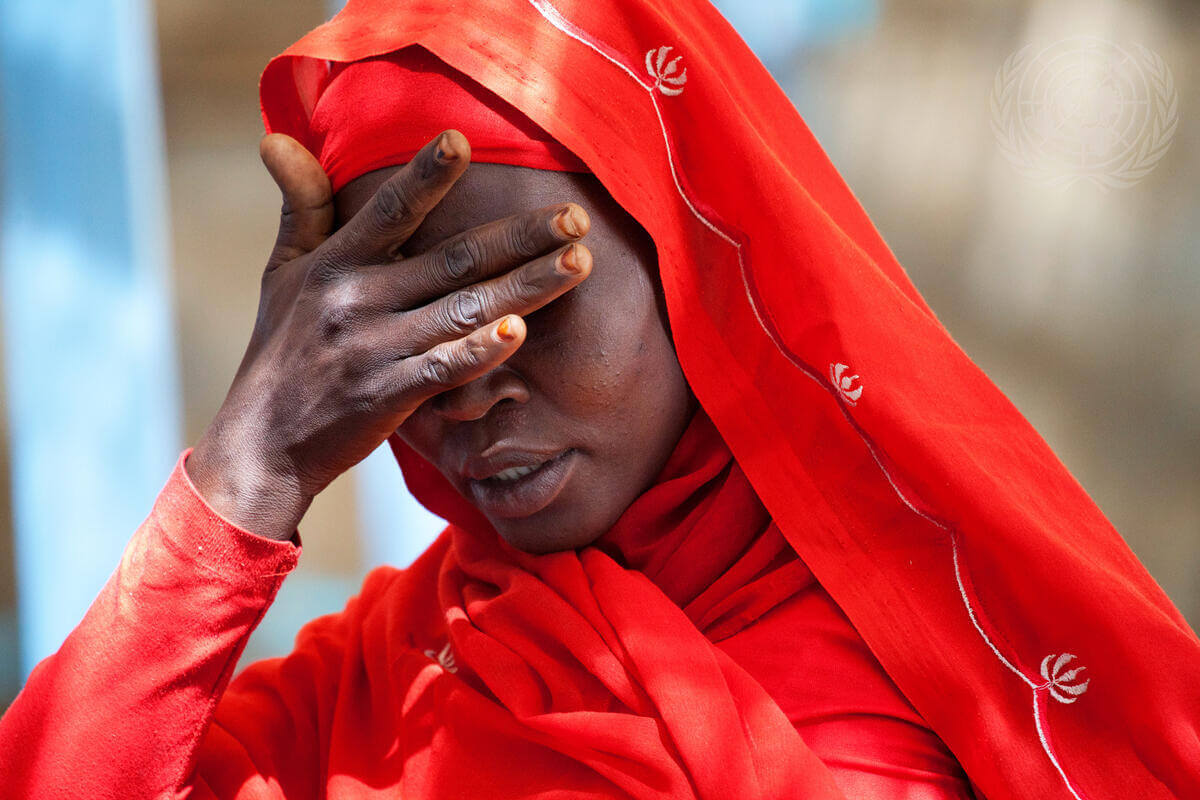The Anglican Alliance was among the signatories of a Declaration of Humanity, launched today, calling for the prevention of sexual violence in conflict and denouncing the stigma faced by survivors, including children born of sexual violence.
Other signatories from the Anglican Communion included the General Secretary of the Anglican Communion and the Anglican Communion’s Director for Gender Justice. The declaration was also signed by leaders of other Christian denominations and Jewish, Sikh, Buddhist, Sunni and Shia Islam, Yazidi and Humanist leaders from across the world.
To mark the launch, the Archbishop of Canterbury tweeted, “Sexual violence in conflict is a terrible, scarring issue. The Declaration of Humanity is an important step towards ending it. As we honour the dignity and courage of survivors, let us stop at nothing to protect the God-given humanity of every person.”
Sexual violence is a brutal and terrifying tactic used in conflict. The UN Secretary General’s latest report on conflict-related sexual violence documents cases across 19 countries verified by the UN during 2019. They make for horrifying reading, but the Secretary General stresses that “there are countless other stories that will never be heard”.
Victims, mostly women, suffer not only the trauma of the physical attacks but also the stigma they encounter afterwards. Both aspects are shocking and unjust.
Religion can be – and is – used to support and condone sexual violence in conflict, but it also has the potential to condemn and reduce it, as faith leaders play a critical role in shaping the moral framework which shapes attitudes and behaviours. That potential is what the Declaration of Humanity aims to harness and build.
In the declaration, the faith and belief leaders said:
Based on our fundamental belief that all persons have innate human dignity and value, we:
- condemn utterly all acts of conflict-related sexual violence towards any person, at any time, and in any circumstance, and will encourage those under our care and others in the community to do the same
- affirm that all survivors of sexual violence in conflict, and children born of conflict-related rape are innocent, are of equal worth and value to all people. They are to be fully accepted, respected, and honoured
- refute the stigma associated with survivors of conflict-related sexual violence and children born of conflict-related rape, and deplore its use as a weapon that instigates the breakdown of families and communities and we will oppose and condemn all symptoms of stigma in our communities
- acknowledge and honour survivors’ independence, courage, hope and resilience, and the right to shape their own futures
We will:
- do all in our power to prevent conflict-related sexual violence and protect all persons vulnerable to such violence, including marginalised minority groups and those of other faiths or beliefs, recognising that adherence to a faith or belief can itself result in additional vulnerability
- work to dismantle harmful interpretations of faith or belief and harmful cultural norms that may be used to condone or commit acts of sexual violence
- support the voices of survivors, stand for justice to prevent oppression, violence and false accusations, and speak out to defend survivors and their right to justice while holding accountable those who have perpetrated crimes
- foster unity between survivors and their communities to support effectively their social integration and their economic and psychological development
- seek to understand the experiences of survivors and their needs, taking care to avoid their retraumatisation
- utilise media, religious discussions, educational materials, texts and all other platforms of our faith or belief community to empower survivors, recognising the resources of our community and that faith or belief can be a source of strength for survivors
Promoting equality and responding to the most vulnerable are two of the three global priorities of the Anglican Alliance in our mandate is to connect, equip and inspire the worldwide Anglican family to work for a world free of poverty and injustice and to safeguard creation.

